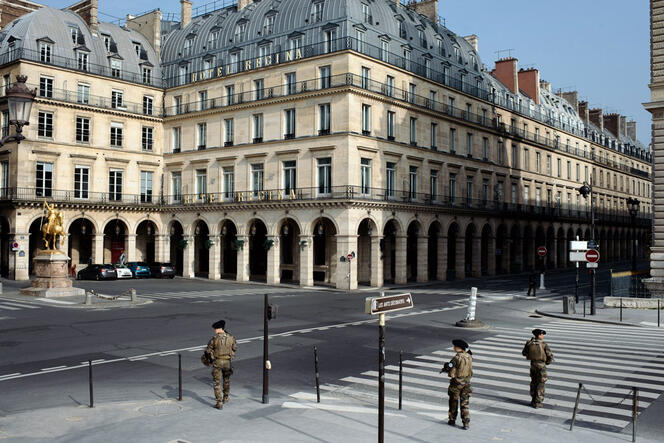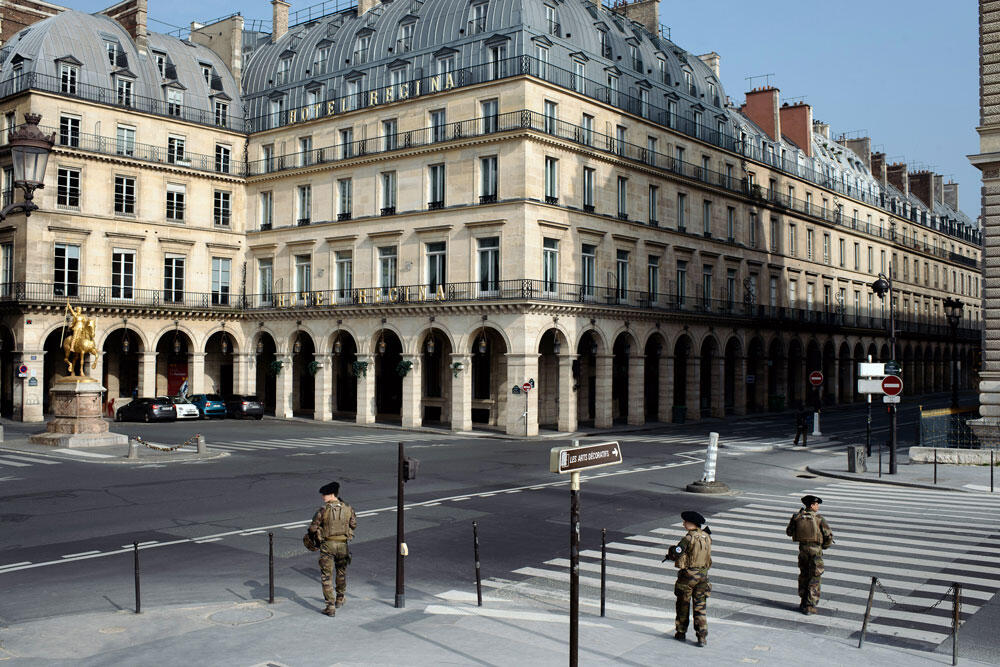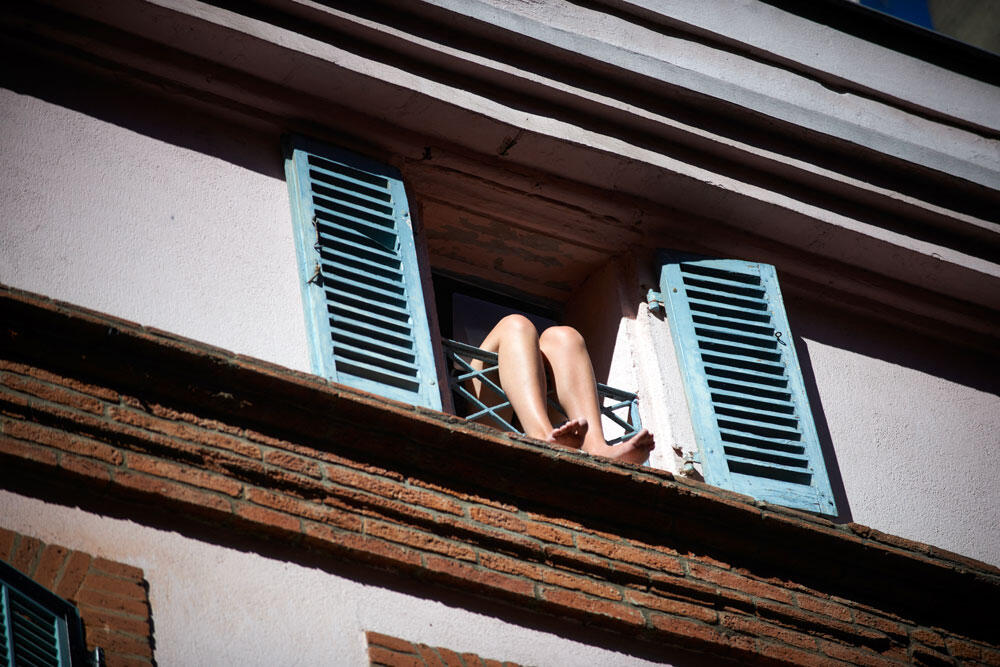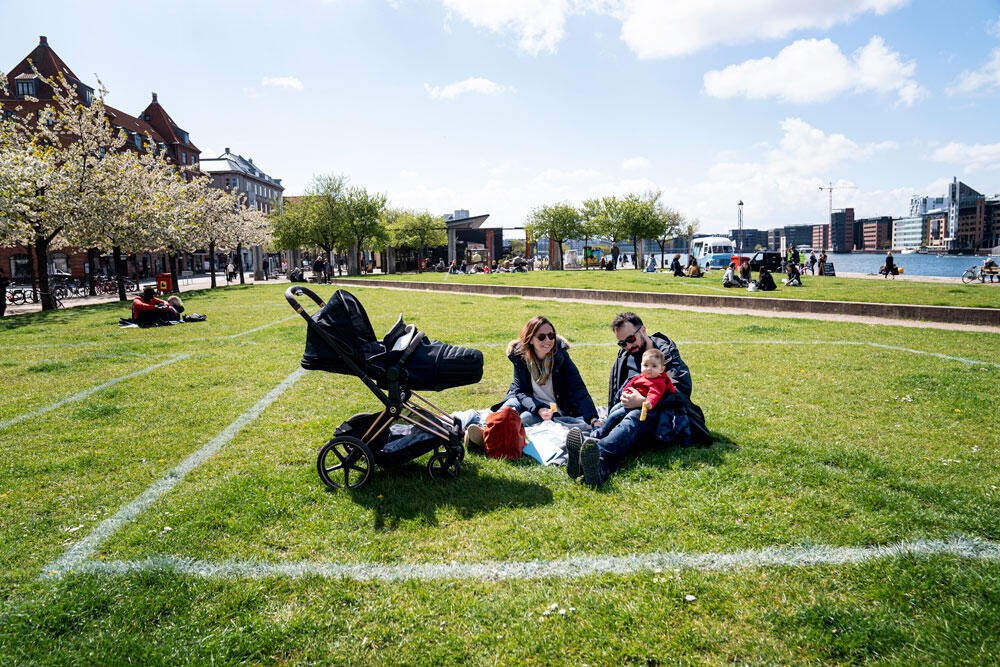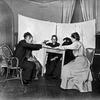You are here
A look back on mass surveillance during the Covid crisis
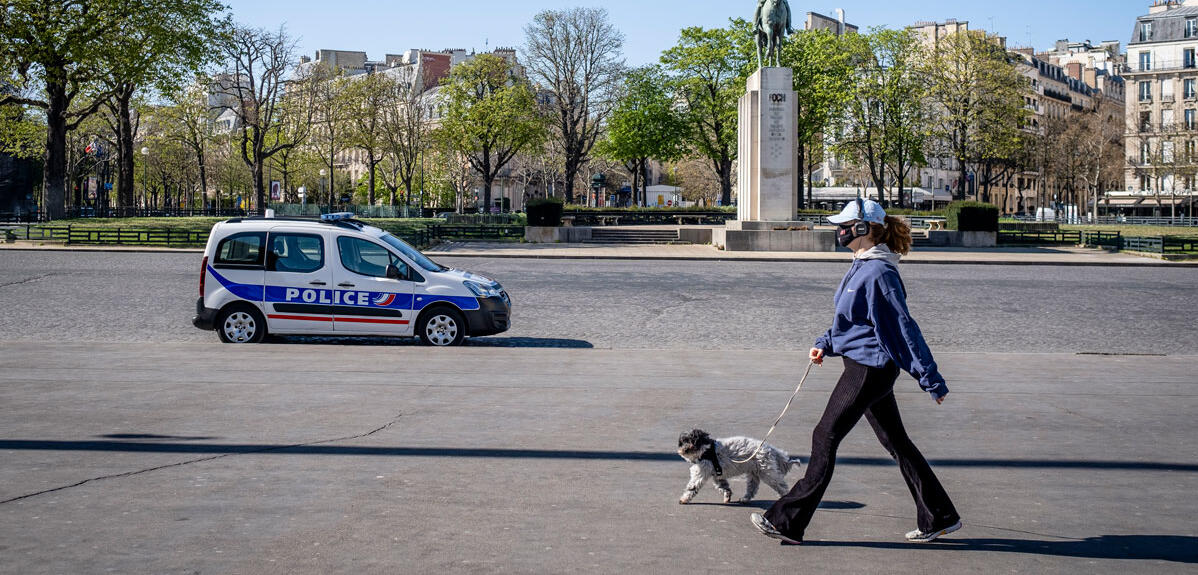
Nicolas Mariot1, you and Théo Boulakia2 are co-authors of L’Attestation (“The form” – Anamosa, 2023), a book in the guise of an investigative report reviewing the coercive aspects of the nationwide lockdown. In reaction to the same health crisis, did various countries adopt very different measures to fight the virus?
Nicolas Mariot: Indeed, in spring 2020, all of the world’s national governments found themselves in the same situation at the same time. As the Dutch prime minister put it, they had to make 100% of the decisions with 50% of the information. However, they adopted radically different policies. In Europe alone, five southern countries – France, Italy, Spain, Greece and Cyprus – adopted some of the strictest measures, with formal certificates, subjecting their populations’ every movement to strict rules, enforced by the police. At the same time, northern European countries like Sweden, Finland, Denmark, Norway and the Netherlands, as well as Switzerland and Bulgaria, implemented the same health measures as everyone else (protective masks, ban on gatherings, encouraging hand washing, etc.), but allowed people to come and go as they wished. As a result, in France the number of visitors to green spaces in spring 2020 was half that of winter, while in Denmark it doubled during the same period.
The authorities also took different tones in speaking to their populations. In his address to the French people on 16 March, President Emmanuel Macron famously repeated four times ‘We are at war3 – ‘admittedly a health war’ but against ‘an elusive enemy’ that is ‘making headway’. On the other hand, Frank-Walter Steinmeier, president of the Federal Republic of Germany, declared, ‘No, this pandemic is not a war’. The Dutch government issued an information manual on the virus that avoided any bellicose rhetoric, putting the emphasis on the collective aspect of the fight against Covid.
Some French local authorities took the national restrictions even further…
N. M.: That’s right – in an executive order dated 23 March, the prefects and mayors were encouraged to ‘use all of their police powers’ and ‘adopt more restrictive measures than those taken on a national scale as required by local circumstances’. A power that they didn't hesitate to exercise. Restrictions of movement were also tightened: most regional authorities imposed limits on access to natural and recreational areas, in some cases offering incongruous reasons like 'The lockdown is not a holiday!' Or adding preposterous conditions, like making it illegal to buy only one baguette or newspaper at a time, or to sit on a public bench. These various extra measures often ran counter to one of the basic justifications for the lockdown: equality in the imposition of restrictions.
How did France come to adopt such a coercive policy?
N. M.: While Italy was the first European country affected by the virus to take drastic measures, the nations that subsequently adopted the strictest rules were at no greater risk than the others from a health point of view. The difference in the reaction is clearly linked to the governments’ coercive habits. As Théo Boulakia and I show, the European states that have more police officers per capita, or that are more accustomed to suspending civil liberties, were the ones that restricted their citizens the most. The pandemic brought about a resurgence of old habits relying on the punitive control of the population. In France, this policy no doubt also reflected the authorities’ lack of confidence in the citizenry’s willingness to comply with the recommended measures. The country was just emerging from the ‘Yellow Vests’ crisis and the demonstrations against pension reform. Our leaders probably feared a hostile reaction.
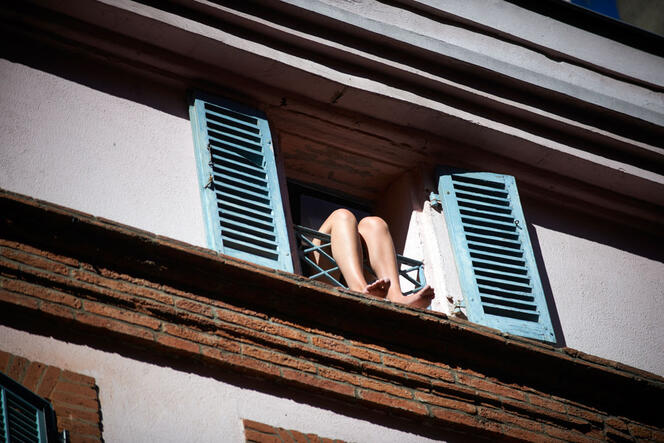
Were police checks much more frequent in France than elsewhere?
N. M.: We were one of the few countries to introduce a form (L’Attestation) that people had to fill out explaining their reasons for leaving home. This was presented as a way of encouraging individual responsibility but quickly became a tool of mass control. Turning every citizen into their own police, this measure (borrowed from the Italians) made it possible to evacuate public areas. According to our survey La Vie en Confinement (“Life in Lockdown”, Vico4) launched in April 2020, 28% of the 16,000 respondents reported that they had been checked at least once between 17 March and 11 May, 2020, a period of only 55 days!
Over that same interval, the Ministry of the Interior released the figure of 21 million controls for all of France (i.e. 67 million inhabitants), including those who had been checked more than once. But the important thing is to understand what we named the ‘moral shock’ of these checks. While many surveys show that in ‘normal’ times, ID verification overwhelmingly concerns young and ‘foreign’-looking men, this time it very largely targeted women, executives, and the over-30 age group –who are otherwise almost never controlled.
Did the checks result in many fines?
N. M.: It was variable. Sanctions were concentrated in four regions: the Mediterranean coast, Northern France including the Paris area, Eastern France and the overseas territories, here again creating a de facto inequality among citizens. On the European scale, we were able to ascertain the number of fines in a few other countries. Spain tops the list with 2,157 penalties per 100,000 population, followed closely by France (1,630), then Italy (709), with the Netherlands at the bottom with 77 fines per 100,000 inhabitants. Obviously, the experience of the lockdown was not the same for everyone.
Why did the population, for the most part, comply with these very restrictive rules?
N. M.: Two hypotheses explain why 80% of the population agreed to stay locked up at home: fear of the virus and fear of the police. The Vico survey showed us that for the entire period, no more than 50% of all French people followed the health recommendations (wearing masks, washing their hands, etc.). This means that scare of the virus alone could not explain this mass submission to the rules.

We also need to consider this obedience from a more horizontal point of view, in terms of comparison with others. The fact is that many people were concerned with setting an example and/or making sure that their neighbours weren’t taking any privileges, no matter how small. The explosion of accusations during the period (addressed to the local authorities, police or radio stations) is an indication of this fundamental concern: the rules are not questioned as long as their enforcement seems to leave no margin for inconsistency. Lastly, another important point is the expulsion of all human presence from public spaces. The cafés and parks were closed, beaches and forests off-limits, and in many cases the streetlights were left off. All of these measures resulted in what we have called ‘dread of the outside’. For women in particular, venturing into a deserted space became a harrowing experience, for fear of an outside world that had become too alien.
Elsewhere in the world, were there countries that adopted more draconian measures?
N. M.: We have all seen terrifying images of Chinese people being locked up or violently evicted from their homes. But there is one notable difference between China and France: in the former, health was always the primary reason behind the new rules. The lockdown was imposed successively in different provinces as the epidemic spread, and differently depending on each person’s status: ‘negative’, ‘contact case’ or ‘infected’. It never affected the entire population at the same time and in the same way, unlike what happened in France.
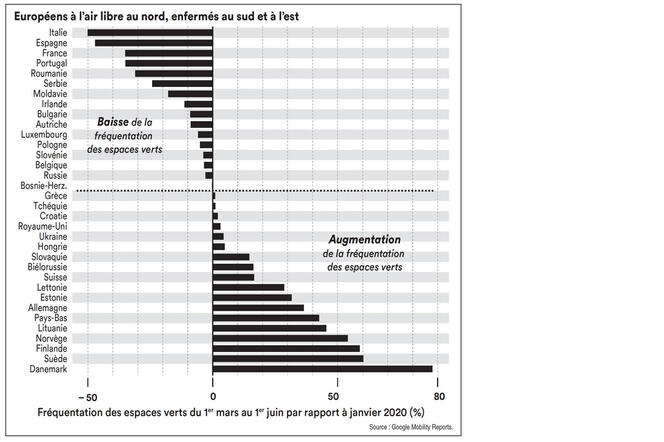


In conclusion, if we had to do it all over again, which country would be the best place to ride out the pandemic?
N. M. : The countries that had a low mortality rate during that period (yes, there were some) without imposing house arrest – Japan, Taiwan or Denmark, for example. Conversely, Kuwait, Ecuador or Peru would not be the best option. France wouldn’t fare much better. And Spain was the country that experienced the worst excess mortality rate, at 40%, even though it implemented the most severe policy, to the point that it finally declared the lockdown unconstitutional and offered a refund to its citizens for any fines they had paid.
Did any of the survey results surprise you?
N. M.: I was astonished to see that no major media, and for that matter no research team, either in France or (as far as I know) anywhere in Europe, was interested in evaluating the effects of this period from a regulatory rather than a health point of view. And yet there are many lessons to be learned from the experience, because we are not immune to a new pandemic. Moreover, with hindsight, we can see that the lockdown, which was accepted because it affected everyone regardless of social class, age, income or place of residence, was in fact relatively unequitable in its enforcement, due to the great freedom granted to local authorities and law enforcement agencies. Lastly, as a historian specialising in the First World War, I have already studied this kind of experiment large-scale obedience. I was surprised that a new holy alliance justifying unbridled government control and the suspension of civil liberties could re-emerge in identical form almost a century later. ♦
For further reading
L’ Attestation. Une expérience d’obéissance de masse, printemps 2020 (“The form: an experiment in mass obedience”), Théo Boulakia and Nicolas Mariot, Éditions Anamosa, September 2023, 400 p., €25. In French.
To find out more
See the results of the Vico (La vie en confinement, “Life under Lockdown”) survey, its sources, its methods, as well as statistical analyses and videos at https://l-attestation.github.io/ (in French)
- 1. The historian and sociologist Nicolas Mariot is a research professor at the European Centre for Sociology and Political Science (CESSP – CNRS / EHESS / Université Panthéon-Sorbonne).
- 2. Théo Boulakia is a PhD student in sociology at the Centre Maurice Halbwachs (CNRS / EHESS / ENS-PSL).
- 3. Nous sommes en guerre : le verbatim du discours d’Emmanuel Macron (“We are at war : verbatim quote from Emmanuel Macron’s speech”), LeMonde.fr, 16 March 2020 (in French).
- 4. Funded by the French National Research Agency (ANR). https://l-attestation.github.io/sources-francaises.html.


